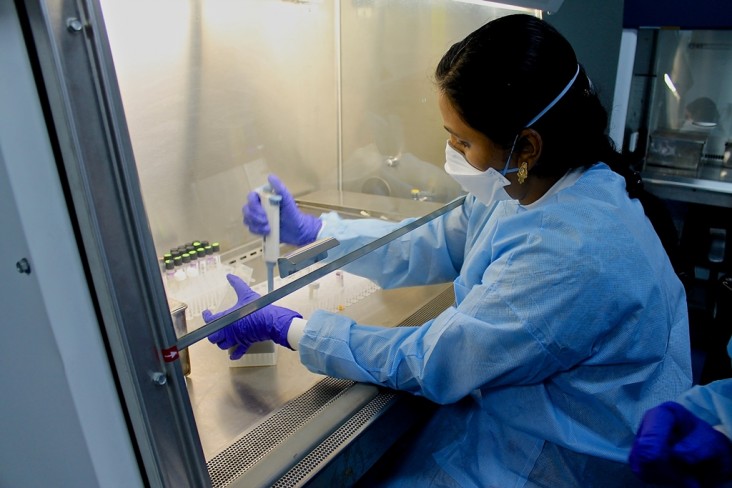
Overview
Since 1998, USAID has partnered with the Government of India (GOI) to combat tuberculosis (TB), investing more than $100 million to help diagnose and treat 15 million people with the disease. USAID’s efforts have contributed to increasing the TB case detection rates from 35 to 70 percent, and treatment success rates from 40 to 85 percent.
India has the largest number of tuberculosis (TB) cases in the world — more than a quarter of the global TB and multidrug resistant TB (MDR-TB) burden. Each year, more than two million people in India get TB, and more than 220,000 people die from it. USAID supports a national movement to make India TB-free by leveraging local intellectual, financial, and material resources in order to accelerate the national TB program and increase public and private support.
USAID/India Programs
USAID partners with technical experts, the Revised National TB Control Program (RNTCP), the private sector, civil society, communities, and patients to achieve a TB-free India. USAID supports a host of activities under the Call to Action for a TB-free India, including integrated care and prevention, raising awareness through public advocacy, and investments in research.
Integrated Care and Prevention: Urban environments tend to have a greater concentration of TB, as well as high levels of transmission. USAID is working in five mega-million cities to ensure that urban patients — particularly slum dwellers and other low-income populations — are diagnosed on their first visit to a health care facility. The TB Health Action Learning Initiative (THALI) project trains health care professionals to follow the standards for TB care and to take up successful innovative approaches to diagnose and treat TB and MDR-TB.
Expanding Access and Quality: Nearly three quarters of patients initially seek care through the private sector, yet private care providers may not be aware of the latest research or guidelines for treatment. To avoid high rates of failed treatment and patients who abandon treatment, USAID engages private care providers to raise awareness and understanding of national program guidelines. USAID also works with them to encourage adoption and adherence to the evidence-based National TB Standards for Care.
Addressing Multidrug Resistant TB (MDR-TB): MDR-TB accounts for 2.2 percent of all TB cases in India. Treatment of drug-resistant cases requires substantial time and resources. USAID helps address this growing by: (1) promoting the adoption and use of a new drug to treat MDR-TB named Bedaquline; (2) promulgating new reporting systems for monitoring early diagnosis and treatment of MDR-TB across the country; and, (3) carrying out the first anti-TB drug resistance survey in India.
Raising Awareness Through Public Advocacy: USAID supports the national campaign, the Call to Action for a TB-free India, to engage health care providers, corporate partners, media, celebrities, civil society, academia, and patients. This campaign raises awareness about the disease, works to reduce social stigma, empowers communities to take an active role in the effort, and encourages health care professionals to implement best practices to reach, cure and prevent TB. USAID also supports a state-level campaign that will take the momentum generated from the Call to Action for a TB-free India to the national level to advocate and provide outreach in select states.
Cutting-Edge Research and Innovation: USAID partners with the private sector, non-governmental organizations (NGOs), and other donors to solicit ideas from local innovators to improve treatment adherence and TB diagnostics in order to apply these proven practices to other high-burden countries. Selected innovators are paired with mentors and like-minded individuals to develop and pursue health care solutions to bring a pilot to market. One example of this is the “99 DOTS” program, which increases drug adherence. After a successful pilot testing 99 DOTS in 30 facilities, the program is now being scaled nationally in partnership with the Government of India.








Comment
Make a general inquiry or suggest an improvement.